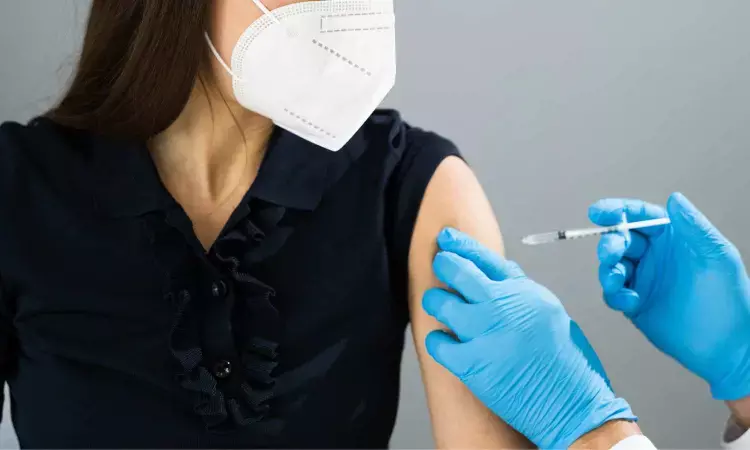- Home
- Medical news & Guidelines
- Anesthesiology
- Cardiology and CTVS
- Critical Care
- Dentistry
- Dermatology
- Diabetes and Endocrinology
- ENT
- Gastroenterology
- Medicine
- Nephrology
- Neurology
- Obstretics-Gynaecology
- Oncology
- Ophthalmology
- Orthopaedics
- Pediatrics-Neonatology
- Psychiatry
- Pulmonology
- Radiology
- Surgery
- Urology
- Laboratory Medicine
- Diet
- Nursing
- Paramedical
- Physiotherapy
- Health news
- Fact Check
- Bone Health Fact Check
- Brain Health Fact Check
- Cancer Related Fact Check
- Child Care Fact Check
- Dental and oral health fact check
- Diabetes and metabolic health fact check
- Diet and Nutrition Fact Check
- Eye and ENT Care Fact Check
- Fitness fact check
- Gut health fact check
- Heart health fact check
- Kidney health fact check
- Medical education fact check
- Men's health fact check
- Respiratory fact check
- Skin and hair care fact check
- Vaccine and Immunization fact check
- Women's health fact check
- AYUSH
- State News
- Andaman and Nicobar Islands
- Andhra Pradesh
- Arunachal Pradesh
- Assam
- Bihar
- Chandigarh
- Chattisgarh
- Dadra and Nagar Haveli
- Daman and Diu
- Delhi
- Goa
- Gujarat
- Haryana
- Himachal Pradesh
- Jammu & Kashmir
- Jharkhand
- Karnataka
- Kerala
- Ladakh
- Lakshadweep
- Madhya Pradesh
- Maharashtra
- Manipur
- Meghalaya
- Mizoram
- Nagaland
- Odisha
- Puducherry
- Punjab
- Rajasthan
- Sikkim
- Tamil Nadu
- Telangana
- Tripura
- Uttar Pradesh
- Uttrakhand
- West Bengal
- Medical Education
- Industry
COVID-19-related immunization disruptions tied to about 50000 excess deaths globally: Lancet

UK: A new modeling study published in The Lancet Global Health journal estimated the health effects of COVID-19-related immunization disruptions in 112 countries during 2020–30.
The researchers used modeling groups from the Vaccine Impact Modelling Consortium from 112 low- and middle-income countries to estimate vaccine effects for 14 disease-causing pathogens. They revealed close to 50,000 additional deaths globally are estimated between 2020 and 2030 due to pandemic-related disruptions to immunization.
"Our results highlight the importance of the timing of catch-up activities, considering the estimated burden to improve vaccine coverage in affected cohorts," Anna-Maria Hartner, Imperial College London, London, UK, and colleagues wrote in their study. "We estimated that mitigation measures for yellow fever and measles were particularly effective at reducing excess burden in the short term."
They added that "the high long-term effect of human papillomavirus (HPV) vaccine as an important cervical-cancer prevention tool warrants continued immunization efforts after disruption."
The research assessed the impact of COVID-19 on the coverage of rubella, measles, human papillomavirus, Meningitis A, Hepatitis B, and yellow fever vaccinations.
Of these additional deaths, more than 30,000 are predicted from Africa and around 13,000 from Southeast Asia. This could be largely due to disruption to measles vaccine coverage. Globally, a little over 44,500 excess deaths are estimated to be due to the disruption to measles immunization.
"The results highlighted the potential excess burden and opportunity for mitigation in African and South-East Asia regions of the World Health Organization (WHO), especially for measles.," the study stated.
The international team of researchers also estimated that catch-up activity can avert around 80 percent of the excess deaths between 2023 and 2030.
The key findings of the study are as follows:
- The researchers estimated that disruption to measles, rubella, HPV, hepatitis B, meningitis A, and yellow fever vaccination could lead to 49 119 additional deaths during calendar years 2020–30, largely due to measles.
- For years of vaccination 2020–30 for all 14 pathogens, disruption could lead to a 2·66% reduction in long-term effect from 37 378 194 deaths averted to 36 410 559 deaths averted.
- The researchers estimated that catch-up activities could avert 78·9% of excess deaths between calendar years 2023 and 2030 (ie, 18 900 of 25 356).
The study findings emphasize the importance of timely catch-up activities and interventions to address affected vaccine cohorts.
The researchers also called for “continued global, concerted efforts” and “strong political commitment”, which will be pivotal for overcoming existing challenges and increasing healthcare resilience.
Reference:
DOI:https://doi.org/10.1016/S2214-109X(23)00603-4
Dr Kamal Kant Kohli-MBBS, DTCD- a chest specialist with more than 30 years of practice and a flair for writing clinical articles, Dr Kamal Kant Kohli joined Medical Dialogues as a Chief Editor of Medical News. Besides writing articles, as an editor, he proofreads and verifies all the medical content published on Medical Dialogues including those coming from journals, studies,medical conferences,guidelines etc. Email: drkohli@medicaldialogues.in. Contact no. 011-43720751


